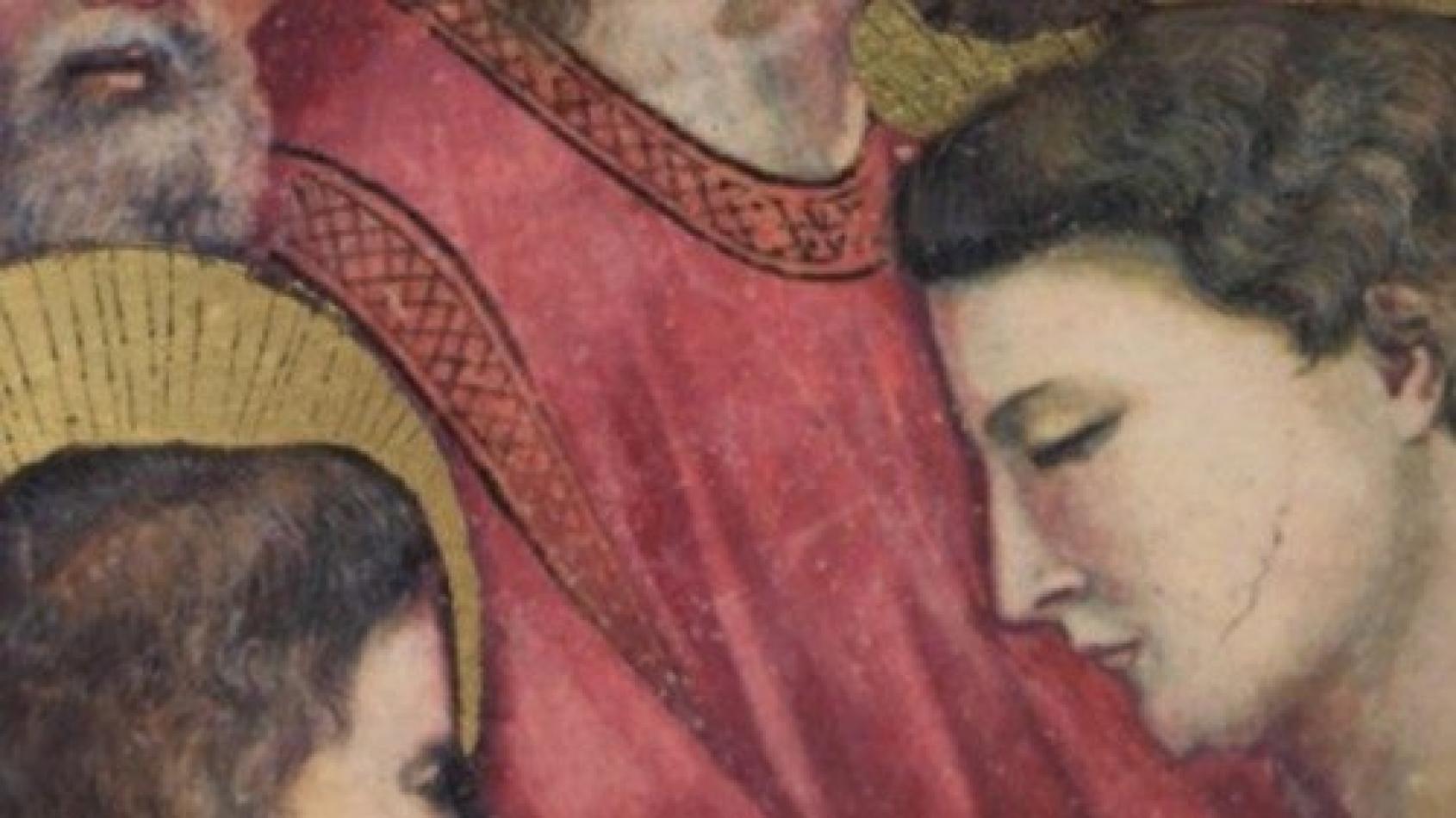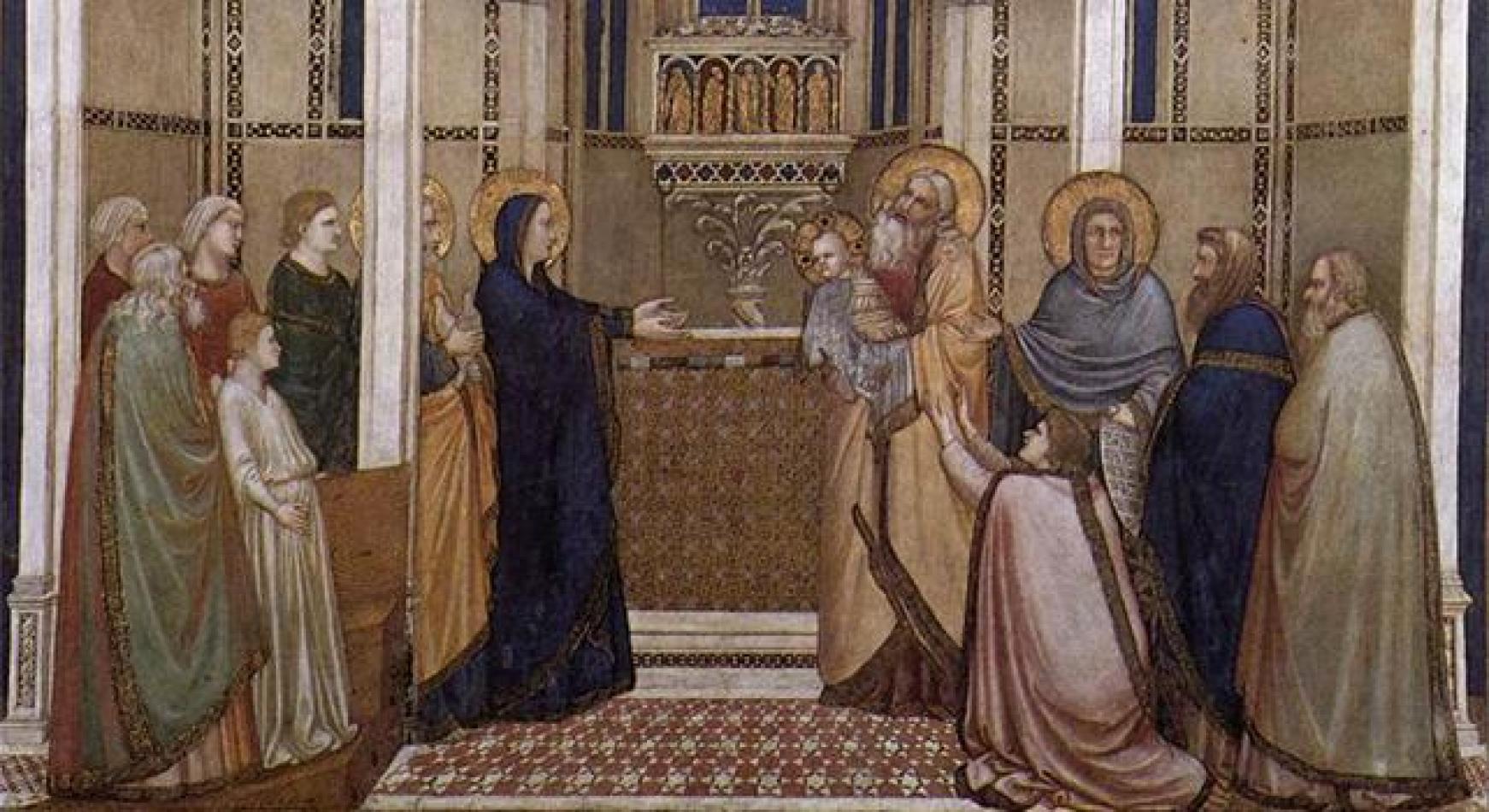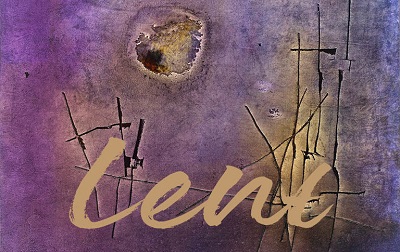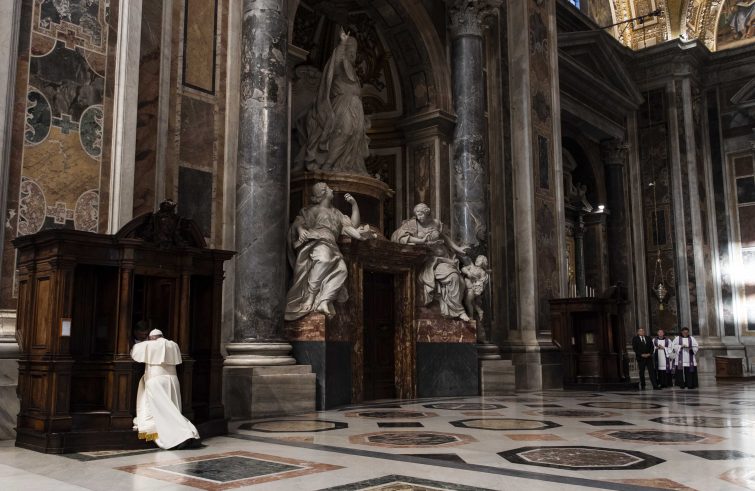Daniel Comboni
Comboni Missionaries
Institutional area
Other links
Newsletter
Lent 2023
We begin the Lenten Season by receiving ashes: “You are dust, and to dust you shall return (cf. Gen 3:19). The dust sprinkled on our heads brings us back to earth; it reminds us that we are dust and to dust we shall return. We are weak, frail and mortal. Centuries and millennia pass and we come and go; before the immensity of galaxies and space, we are nothing. We are dust in the universe. Yet we are dust loved by God. [The Message of Pope Francis for Lent 2023]
From dust to life
We begin the Lenten Season by receiving ashes: “You are dust, and to dust you shall return (cf. Gen 3:19). The dust sprinkled on our heads brings us back to earth; it reminds us that we are dust and to dust we shall return. We are weak, frail and mortal. Centuries and millennia pass and we come and go; before the immensity of galaxies and space, we are nothing. We are dust in the universe. Yet we are dust loved by God. It pleased the Lord to gather that dust in his hands and to breathe into it the breath of life (cf. Gen 2:7). We are thus a dust that is precious, destined for eternal life. We are the dust of the earth, upon which God has poured out his heaven, the dust that contains his dreams. We are God’s hope, his treasure and his glory.
Ashes are thus a reminder of the direction of our existence: a passage from dust to life. We are dust, earth, clay, but if we allow ourselves to be shaped by the hands of God, we become something wondrous. More often than not, though, especially at times of difficulty and loneliness, we only see our dust! But the Lord encourages us: in his eyes, our littleness is of infinite value. So let us take heart: we were born to be loved; we were born to be children of God.
Dear brothers and sisters, may we keep this in mind as we begin this Lenten season. For Lent is not a time for useless sermons, but for recognizing that our lowly ashes are loved by God. It is a time of grace, a time for letting God gaze upon us with love and in this way change our lives. We were put in this world to go from ashes to life. So let us not turn our hopes and God’s dream for us into powder and ashes. Let us not grow resigned. You may ask: “How can I trust? The world is falling to pieces, fear is growing, there is so much malice all around us, society is becoming less and less Christian…” Don’t you believe that God can transform our dust into glory?
The ashes we receive on our foreheads should affect the thoughts passing through our minds. They remind us that, as God’s children, we cannot spend our lives chasing after dust. From there a question can pass into our hearts: “What am I living for?” If it is for the fleeting realities of this world, I am going back to ashes and dust, rejecting what God has done in my life. If I live only to earn money, to have a good time, to gain a bit of prestige or a promotion in my work, I am living for dust. If I am unhappy with life because I think I do not get enough respect or receive what I think is my due, then I am simply staring at dust.
That is not why we have been put in this world. We are worth so much more. We live for so much more, for we are meant to make God’s dream a reality and to love. Ashes are sprinkled on our heads so that the fire of love can be kindled in our hearts. We are citizens of heaven, and our love for God and neighbour is our passport to heaven. Our earthly possessions will prove useless, dust that scatters, but the love we share – in our families, at work, in the Church and in the world – will save us, for it will endure forever.
The ashes we receive remind us of a second and opposite passage: from life to dust. All around us, we see the dust of death. Lives reduced to ashes. Rubble, destruction, war. The lives of unwelcomed innocents, the lives of the excluded poor, the lives of the abandoned elderly. We continue to destroy ourselves, to return to ashes and dust. And how much dust there is in our relationships! Look at our homes and families: our quarrels, our inability to resolve conflicts, our unwillingness to apologize, to forgive, to start over, while at the same time insisting on our own freedom and our rights! All this dust that besmirches our love and mars our life. Even in the Church, the house of God, we have let so much dust collect, the dust of worldliness.
Let us look inside, into our hearts: how many times do we extinguish the fire of God with the ashes of hypocrisy! Hypocrisy is the filth that Jesus tells us in today’s Gospel that we have to remove. Indeed, the Lord tells us not only to carry out works of charity, to pray and to fast, but also to do these without pretense, duplicity and hypocrisy (cf. Mt 6:2.5.16). Yet how often do we do things only to be recognized, to look good, to satisfy our ego! How often do we profess to be Christians, yet in our hearts readily yield to passions that enslave us! How often do we preach one thing and practice another! How many times do we make ourselves look good on the outside while nursing grudges within! How much duplicity do we have in our hearts… All this is dust that besmirches, ashes that extinguish the fire of love.
We need to be cleansed of all the dust that has sullied our hearts. How? The urgent summons of Saint Paul in today’s second reading can help us. Paul says: “Be reconciled to God!” He does not simply ask; he begs: “We beg you on behalf of Christ, be reconciled to God” (2 Cor 5:20). We would have said: “Reconcile yourselves with God!” But no, Paul uses passive form: Be reconciled! Holiness is not achieved by our efforts, for it is grace! By ourselves, we cannot remove the dust that sullies our hearts. Only Jesus, who knows and loves our heart, can heal it. Lent is a time of healing.
What, then, are we to do? In journeying towards Easter, we can make two passages: first, from dust to life, from our fragile humanity to the humanity of Jesus, who heals us. We can halt in contemplation before the crucified Lord and repeat: “Jesus, you love me, transform me… Jesus, you love me, transform me…” And once we have received his love, once we have wept at the thought of that love, we can make the second passage, by determining never to fall again from life into dust. We can receive God’s forgiveness in the sacrament of Penance, because there the fire of God’s love consumes the ashes of our sin. The embrace of the Father in confession renews us from inside and purifies our heart. May we allow ourselves to be reconciled, in order to live as beloved children, as forgiven and healed sinners, as wayfarers with him at our side.
Let us allow ourselves to be loved, so that we can give love in return. Let us allow ourselves to stand up and walk towards Easter. Then we will experience the joy of discovering how God raises us up from our ashes.
Pope Francis, Ashes 2020
“The two of them alone remained:
mercy with misery”
“The two of them alone remained: mercy with misery” (In Joh 33, 5). In this way Saint Augustine sums up the end of the Gospel we have just heard. Those who came to cast stones at the woman or to accuse Jesus with regard to the Law have gone away, having lost interest. Jesus, however, remains. He remains because what is of value in his eyes has remained: that woman, that person. For him, the sinner comes before the sin. I, you, each one of us come first in the heart of God: before mistakes, rules, judgements and our failures. Let us ask for the grace of a gaze like that of Jesus, let us ask to have the Christian perspective on life. Let us look with love upon the sinner before his or her sin; upon the one going astray before his or her error; upon the person before his or her history.
“The two of them alone remained: mercy with misery”. The woman caught in adultery does not represent for Jesus a paragraph of the Law, but instead a concrete situation in which he gets involved. Thus he remains there with the woman, for the most part standing in silence. Meanwhile, he twice performs a mysterious gesture: he writes with his finger on the ground (Jn 8:6, 8). We do not know what he wrote and perhaps that is not the most important element: the attention of the Gospel focuses on the fact that the Lord writes. We think of the episode at Sinai when God wrote the tablets of the Law with his finger (cf. Ex 31:18), just as Jesus does now. Later, God, through the prophets, promised that he would no longer write on tablets of stone, but directly on the heart (cf. Jer 31:33), on the tablets of the flesh of our hearts (cf. 2 Cor 3:3). With Jesus, the mercy of God incarnate, the time has come when God writes on the hearts of men and women, when he gives a sure hope to human misery: giving not so much external laws which often keep God and humanity at a distance, but rather the law of the Spirit which enters into the heart and sets it free. It happens this way for the woman, who encounters Jesus and resumes her life: she goes off to sin no more (cf. Jn 8:11). It is Jesus who, with the power of the Holy Spirit, frees us from the evil we have within us, from the sin which the Law could impede but not remove.
All the same, evil is strong, it has a seductive power: it attracts and fascinates. Our own efforts are not enough to detach ourselves from it: we need a greater love. Without God, we cannot overcome evil. Only his love raises us up from within, only his tender love poured out into our hearts makes us free. If we want to be free from evil, we have to make room for the Lord who forgives and heals. He accomplishes this above all through the sacrament we are about to celebrate. Confession is the passage from misery to mercy; it is God’s writing upon the heart. There – in our hearts – we constantly read that we are precious in the eyes of God, that he is our Father and that he loves us even more than we love ourselves.
“The two of them alone remained: mercy with misery”. Those two, alone. How many times do we feel alone, that we have lost our way in life. How many times do we no longer know how to begin again, overwhelmed by the effort to accept ourselves. We need to start over, but we don’t know where to begin. Christians are born from the forgiveness they receive in Baptism. They are always reborn from the same place: from the surprising forgiveness of God, from his mercy which restores us. Only by being forgiven can we set out again with fresh confidence, after having experienced the joy of being loved by the Father to the full. Only through God’s forgiveness do truly new things happen within us. Let us hear again words the Lord spoke through the prophet Isaiah: “Behold, I am doing a new thing” (Is 43:19). Forgiveness gives us a new beginning, makes us new creatures, helps us take hold of a new life. God’s forgiveness is not a photocopy which is identically reproduced in every passage through the confessional. Receiving pardon for our sins through a priest is always a new, distinctive and unique experience. We pass from being alone with our miseries and accusers, like the woman in the Gospel, to being raised up and encouraged by the Lord who grants us a new start.
“The two of them alone remained: mercy with misery”. What do we need to do to come to love mercy, to overcome the fear of Confession? Let us accept once more the invitation of Isaiah: “Do you not perceive it?” (Is 43:19). It is important to perceive God’s forgiveness. It would be beautiful, after Confession, to remain like that woman, our eyes fixed on Jesus who has just set us free: no longer looking at our miseries, but rather at his mercy. To look at the Crucified One and say with amazement: “That’s where my sins ended up. You took them upon yourself. You didn’t point your finger at me; instead, you opened your arms and forgave me once again”. It is important to be mindful of God’s forgiveness, to remember his tender love, and taste again and again the peace and freedom we have experienced. For this is the heart of Confession: not the sins we declare, but the divine love we receive, of which we are ever in need. We may still have a doubt: “Confessing is useless, I am always committing the same sins”. The Lord knows us, however; he knows that the interior struggle is difficult, that we are weak and inclined to fall, that we often relapse into doing what is wrong. So he proposes that we begin to relapse into goodness, into asking for mercy. He will raise us up and make us new creatures. Let us start over, then, from Confession, let us restore to this sacrament the place it deserves in life and pastoral ministry!
“The two of them alone remained: mercy with misery”. Today, in Confession, we too draw life from this saving encounter: we with our miseries and sins, and the Lord who knows us, loves us and frees us from evil. Let us enter into this encounter, asking for the grace to rediscover its saving power.
Pope Francis, penitential celebration 2019
Rediscover the direction of life
“Blow the trumpet […] sanctify a fast” (Joel 2:15), says the prophet in the first reading. Lent opens with a piercing sound, that of a trumpet that does not please the ears, but instead proclaims a fast. It is a loud sound that seeks to slow down our life, which is so fast-paced, yet often directionless. It is a summons to stop – a “halt!” –, to focus on what is essential, to fast from the unnecessary things that distract us. It is a wake-up call for the soul.
This wake-up call is accompanied by the message that the Lord proclaims through the lips of the prophet, a short and heartfelt message: “Return to me” (v 12). To return. If we have to return, it means that we have wandered off. Lent is the time to rediscover the direction of life. Because in life’s journey, as in every journey, what really matters is not to lose sight of the goal. If what interests us as we travel, however, is looking at the scenery or stopping to eat, we will not get far. We should ask ourselves: On the journey of life, do I seek the way forward? Or am I satisfied with living in the moment and thinking only of feeling good, solving some problems and having fun? What is the path? Is it the search for health, which many today say comes first but which eventually passes? Could it be possessions and wellbeing? But we are not in the world for this. Return to me, says the Lord. To me. The Lord is the goal of our journey in this world. The direction must lead to him.
Today we have been offered a sign that will help us find our direction: the head marked by ash. It is a sign that causes us to consider what occupies our mind. Our thoughts often focus on transient things, which come and go. The small mark of ash, which we will receive, is a subtle yet real reminder that of the many things occupying our thoughts, that we chase after and worry about every day, nothing will remain. No matter how hard we work, we will take no wealth with us from this life. Earthly realities fade away like dust in the wind. Possessions are temporary, power passes, success wanes. The culture of appearance prevalent today, which persuades us to live for passing things, is a great deception. It is like a blaze: once ended, only ash remains. Lent is the time to free ourselves from the illusion of chasing after dust. Lent is for rediscovering that we are created for the inextinguishable flame, not for ashes that immediately disappear; for God, not for the world; for the eternity of heaven, not for earthly deceit; for the freedom of the children of God, not for slavery to things. We should ask ourselves today: Where do I stand? Do I live for fire or for ash?
On this Lenten journey, back to what is essential, the Gospel proposes three steps which the Lord invites us to undertake without hypocrisy and pretence: almsgiving, prayer, fasting. What are they for? Almsgiving, prayer and fasting bring us back to the three realities that do not fade away. Prayer reunites us to God; charity, to our neighbour; fasting, to ourselves. God, my neighbour, my life: these are the realities that do not fade away and in which we must invest. Lent, therefore, invites us to focus, first of all on the Almighty, in prayer, which frees us from that horizontal and mundane life where we find time for self but forget God. It then invites us to focus on others, with the charity that frees us from the vanity of acquiring and of thinking that things are only good if they are good for me. Finally, Lent invites us to look inside our heart, with fasting, which frees us from attachment to things and from the worldliness that numbs the heart. Prayer, charity, fasting: three investments for a treasure that endures.
Jesus said: “Where your treasure is, there will your heart be also” (Mt 6:21). Our heart always points in some direction: it is like a compass seeking its bearings. We can also compare it to a magnet: it needs to attach itself to something. But if it only attaches itself to earthly things, sooner or later it becomes a slave to them: things to be used become things we serve. Outward appearance, money, a career or hobby: if we live for them, they will become idols that enslave us, sirens that charm us and then cast us adrift. Whereas if our heart is attached to what does not pass away, we rediscover ourselves and are set free. Lent is the time of grace that liberates the heart from vanity. It is a time of healing from addictions that seduce us. It is a time to fix our gaze on what abides.
Where can we fix our gaze, then, throughout this Lenten journey? It is simple: upon the Crucified one. Jesus on the cross is life’s compass, which directs us to heaven. The poverty of the wood, the silence of the Lord, his loving self-emptying show us the necessity of a simpler life, free from anxiety about things. From the cross, Jesus teaches us the great courage involved in renunciation. We will never move forward if we are heavily weighed down. We need to free ourselves from the clutches of consumerism and the snares of selfishness, from always wanting more, from never being satisfied, and from a heart closed to the needs of the poor. Jesus on the wood of the cross burns with love, and calls us to a life that is passionate for him, which is not lost amid the ashes of the world; to a life that burns with charity and is not extinguished in mediocrity. Is it difficult to live as he asks? Yes, it is difficult, but it leads us to our goal. Lent shows us this. It begins with the ashes, but eventually leads us to the fire of Easter night; to the discovery that, in the tomb, the body of Jesus does not turn to ashes, but rises gloriously. This is true also for us, who are dust. If we, with our weaknesses, return to the Lord, if we take the path of love, then we will embrace the life that never ends. And surely we will be full of joy.
Pope Francis, Ashes 2019
Pause, see and return!
The season of Lent is a favourable time to remedy the dissonant chords of our Christian life and to receive the ever new, joyful and hope-filled proclamation of the Lord’s Passover. The Church in her maternal wisdom invites us to pay special attention to anything that could dampen or even corrode our believing heart.
We are subject to numerous temptations. Each of us knows the difficulties we have to face. And it is sad to note that, when faced with the ever-varying circumstances of our daily lives, there are voices raised that take advantage of pain and uncertainty; the only thing they aim to do is sow distrust. If the fruit of faith is charity – as Mother Teresa often used to say – then the fruit of distrust is apathy and resignation. Distrust, apathy and resignation: these are demons that deaden and paralyze the soul of a believing people.
Lent is the ideal time to unmask these and other temptations, to allow our hearts to beat once more in tune with the vibrant heart of Jesus. The whole of the Lenten season is imbued with this conviction, which we could say is echoed by three words offered to us in order to rekindle the heart of the believer: pause, see and return.
Pause a little, leave behind the unrest and commotion that fill the soul with bitter feelings which never get us anywhere. Pause from this compulsion to a fast-paced life that scatters, divides and ultimately destroys time with family, with friends, with children, with grandparents, and time as a gift… time with God.
Pause for a little while, refrain fromthe need to show off and be seen by all, to continually appear on the “noticeboard” that makes us forget the value of intimacy and recollection.
Pause for a little while, refrain from haughty looks, from fleeting and pejorative comments that arise from forgetting tenderness, compassion and reverence for the encounter with others, particularly those who are vulnerable, hurt and even immersed in sin and error.
Pause for a little while, refrain fromthe urge to want to control everything, know everything, destroy everything; this comes from overlooking gratitude for the gift of life and all the good we receive.
Pause for a little while, refrain from the deafening noise that weakens and confuses our hearing, that makes us forget the fruitful and creative power of silence.
Pause for a little while, refrain from the attitude which promotes sterile and unproductive thoughts that arise from isolation and self-pity, and that cause us to forget going out to encounter others to share their burdens and suffering.
Pause for a little while, refrain from the emptiness of everything that is instantaneous, momentary and fleeting, that deprives us of our roots, our ties, of the value of continuity and the awareness of our ongoing journey.
Pause in order to look and contemplate!
See the gestures that prevent the extinguishing of charity, that keep the flame of faith and hope alive. Look at faces alive with God’s tenderness and goodness working in our midst.
See the face of our families who continue striving, day by day, with great effort, in order to move forward in life, and who, despite many concerns and much hardship, are committed to making their homes a school of love.
See the faces of our children and young people filled with yearning for the future and hope, filled with “tomorrows” and opportunities that demand dedication and protection. Living shoots of love and life that always open up a path in the midst of our selfish and meagre calculations.
See our elderly whose faces are marked by the passage of time, faces that reveal the living memory of our people. Faces that reflect God’s wisdom at work.
See the faces of our sick people and the many who take care of them; faces which in their vulnerability and service remind us that the value of each person can never be reduced to a question of calculation or utility.
See the remorseful faces of so many who try to repair their errors and mistakes, and who from their misfortune and suffering fight to transform their situations and move forward.
See and contemplate the face of Crucified Love, who today from the cross continues to bring us hope, his hand held out to those who feel crucified, who experience in their lives the burden of failure, disappointment and heartbreak.
See and contemplate the real face of Christ crucified out of love for everyone, without exception. For everyone? Yes, for everyone. To see his face is an invitation filled with hope for this Lenten time, in order to defeat the demons of distrust, apathy and resignation. The face that invites us to cry out: “The Kingdom of God is possible!”
Pause, see and return. Return to the house of your Father. Return without fear to those outstretched, eager arms of your Father, who is rich in mercy (cf. Eph 2:4), who awaits you.
Return without fear, for this is the favourable time to come home, to the home of my Father and your Father (cf. Jn 20:17). It is the time for allowing one’s heart to be touched… Persisting on the path of evil only gives rise to disappointment and sadness. True life is something quite distinct and our heart indeed knows this. God does not tire, nor will he tire, of holding out his hand (cf. Misericordiae Vultus, 19).
Return without fear, to join in the celebration of those who are forgiven.
Return without fear, to experience the healing and reconciling tenderness of God. Let the Lord heal the wounds of sin and fulfil the prophecy made to our fathers: “A new heart I will give you, and a new spirit I will put within you; and I will take out of your flesh the heart of stone and give you a heart of flesh” (Ezek 36: 26).
Pause, see and return!
Pope Francis, Ashes 2018








